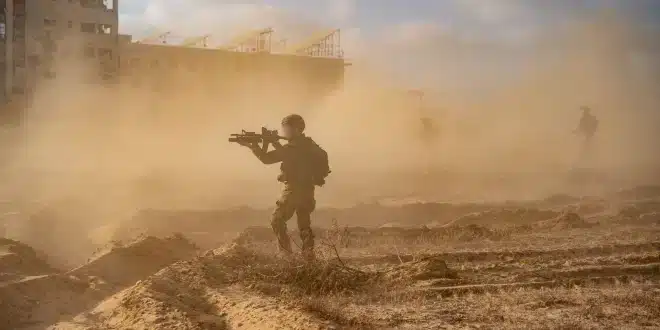Humanitarian efforts are currently challenged in distributing limited food supplies to a significant number of Palestinians displaced from Rafah, due to ongoing Israeli military operations that Israel describes as limited. The closures of the primary crossings near Rafah have further complicated these efforts.
According to the UN agency for Palestinian refugees, out of 1.3 million initially sheltering in Rafah, 360,000 have fled in the past week alone. These individuals had mostly sought refuge from prior conflicts in the ongoing seven-month war between Israel and Hamas. Israel has described Rafah as a critical hub for militants, dismissing international concerns over the impact of military actions on civilians. In contrast, Hamas has been consolidating its position in regions heavily impacted by earlier Israeli offensives.
Recently, a shipment of 38 trucks loaded with flour entered Gaza through the Western Erez Crossing, newly reopened by Israel. However, no deliveries have been made through the main southern crossings for a week. The Rafah crossing into Egypt has been seized by Israeli forces, and nearby fighting has blocked access to the Kerem Shalom crossing with Israel, although Israel claims it is still allowing supplies through from its side.
The intensity of Israeli military actions in Rafah has escalated, with evacuation orders issued to residents in parts of the city, focusing on eliminating militant infrastructure along the Egypt border. Despite this, confrontations continue with Palestinian militants in northern Gaza sectors like Zeitoun and Jabaliya, areas previously targeted by Israel.
The World Food Program (WFP) spokesperson, Abeer Etefa, noted that the WFP is utilizing its remaining supplies to assist those displaced from Rafah to areas like Khan Younis and Deir Balah. In Rafah itself, only two organizations in collaboration with the WFP are managing to distribute food, with no operational bakeries remaining.
The situation has deteriorated significantly, with food distributions largely halted due to evacuations and food shortages, making sustainability a growing concern. Gaza’s population, nearly entirely dependent on aid, faces severe hunger with potential for famine, particularly in the north.
Furthermore, the Kuwait Hospital in Rafah, among the last operational medical facilities, has seen evacuation orders for nearby residents and staff. The potential evacuation of the hospital itself could have dire consequences.
On a broader scale, Israel has expanded evacuation orders in northern Gaza, impacting many who had previously fled early in the conflict. Mahmoud Shalabi from Medical Aid for Palestinians described his repeated displacements under terrifying conditions.
The conflict, initiated by an attack from Hamas and other groups into southern Israel on October 7, resulted in significant casualties and hostage situations. While many hostages were released during a ceasefire, the situation remains tense with many still captive.
Israel’s Memorial Day recently highlighted the national mourning for soldiers lost since the conflict’s onset, with Prime Minister Benjamin Netanyahu reiterating his commitment to defeating Hamas and securing the return of all hostages.
The U.S., while supportive of Israel, has voiced concerns over the consequences of a full-scale assault on Rafah, emphasizing the risk of prolonged conflict without clear governance plans for Gaza post-war, a scenario complicated by Israeli objections to proposals involving the Palestinian Authority and Arab states.


